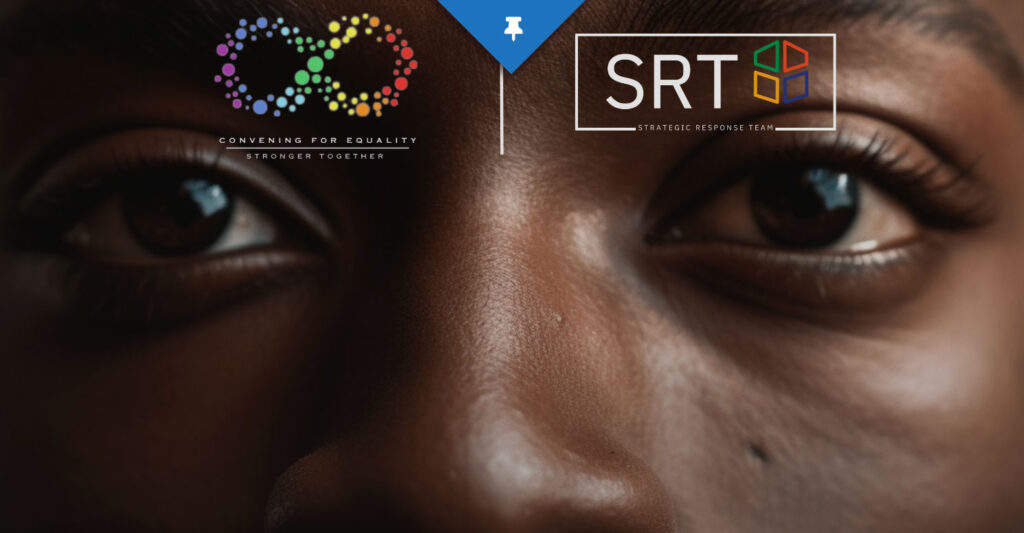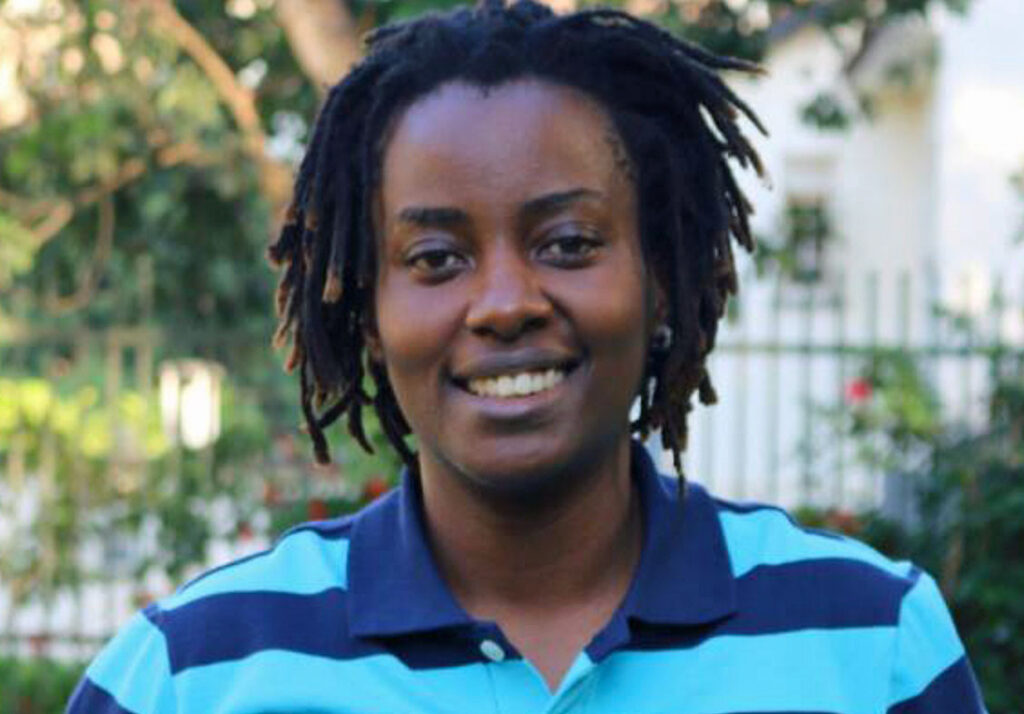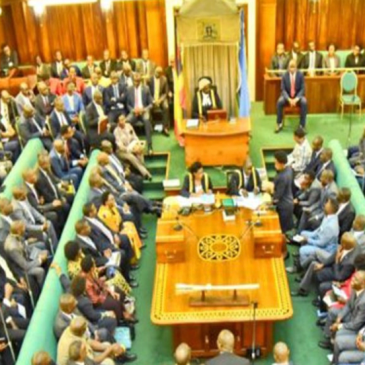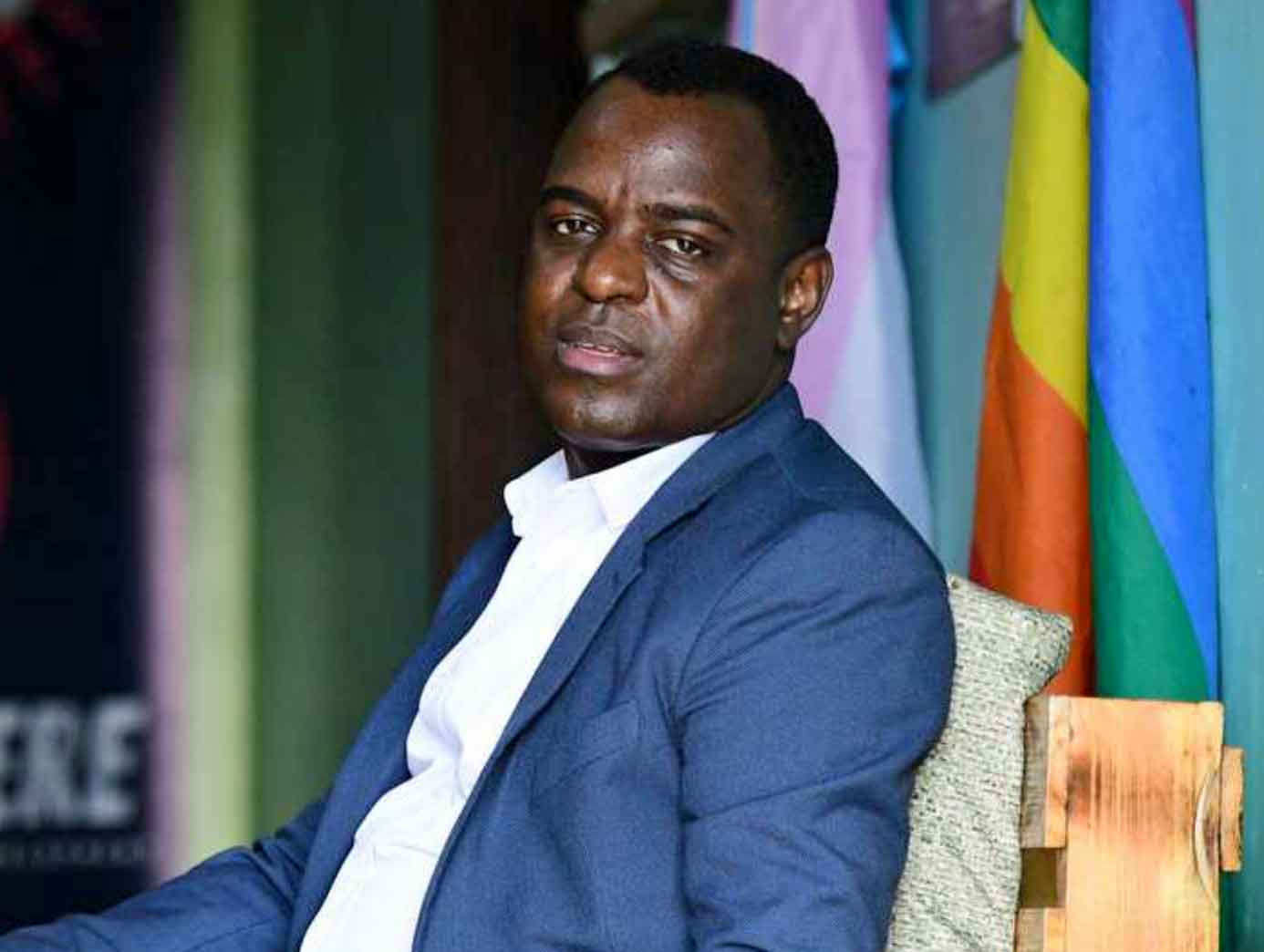
New report from Ugandan human rights groups Convening for Equality and its Strategic Response Team highlight a “horrific breadth and depth of abuses” that have occurred in response to the nation’s new Anti-Homosexuality Act before and after its enactment. (Image courtesy of Kuchu Times)
Human rights activists in Uganda are appealing for a stronger response from Western nations that oppose Uganda’s harsh new Anti-Homosexuality Act.
In a report, they described “the horrific breadth and depth of abuses” prompted by the law.
“Our research clearly shows a massive escalation in serious abuses of LGBTIQ+ Ugandans who previously were working, caring for loved ones and living as productive citizens. Now many have been evicted, fired from their jobs, unable to access healthcare, all while facing increasing risks of arrest, mob justice and public humiliation simply for living their lives,” stated Pepe Julian Onzeima, one of the report’s authors.
The report documents more than 500 human rights violations targeting LGBTQ Ugandans this year:
- 180 evictions from housing,
- 159 instances of discrimination,
- 176 incidents of torture, and cruel, inhuman, and degrading treatment committed by state and non-state actors, including
- At least 18 forced anal examinations conducted under police order.
“It is more important than ever for international funders and businesses to actively defend the principles of non-discrimination and inclusive economic development in their words and actions,” stated Frank Mugisha of Sexual Minorities Uganda.
The World Bank has suspended loans to Uganda. but other rebukes to Uganda have been mild.
Despite appeals from Ugandan activists, the European Union announced on Sept. 6 that it would not suspend humanitarian aid to Uganda in response to the repressive new law.
The United States only announced a travel ban against unnamed Ugandan officials who violate human rights,
That’s not enough, the Ugandan activists say.
“The US, the EU, the UK and other allied nations should be coordinating to bring multilateral pressure on Uganda and explain with precision how their donor money will be allocated in Uganda in ways that live up to their values and commitments,” the Ugandan activists declared.
Their report can be downloaded HERE or viewed in interactive-magazine format HERE via Kuchu Times.
This is the activists’ public announcement, issued today:
Uganda’s Anti-Homosexuality Act Fuelling Devastating Discrimination and Violence
Kampala, Uganda (September 28, 2023) A new report by the Strategic Response Team of Uganda’s Convening For Equality lays out the horrific breadth and depth of abuses prompted by the debate and passage of the 2023 Anti-Homosexuality Act. Based on months of in-depth investigation, the new report documents over 300 human rights violations and abuses committed by state and nonstate actors, all of which have gone unaddressed by authorities, leaving survivors without redress.
“This new law is blatantly unconstitutional and should be nullified by the Constitutional Court as soon as possible,” said Pepe Julian Onzeima, one of the report’s authors and leader of the Strategic Response Team (SRT).
“Our research clearly shows a massive escalation in serious abuses of LGBTIQ+ Ugandans who previously were working, caring for loved ones and living as productive citizens. Now many have been evicted, fired from their jobs, unable to access healthcare, all while facing increasing risks of arrest, mob justice and public humiliation simply for living their lives.”
The new report is a situational analysis of the rights and well-being of Lesbian, Gay, Bisexual,
Transgender, Intersex and Queer plus persons (LGBTIQ+) persons in Uganda from January to August 2023 and makes recommendations to diverse national and international stakeholders to increase protections and mitigate and end the impact of the Anti-Homosexuality Act 2023.
During the reporting period, real and perceived LGBTIQ+ persons were tortured, beaten, arrested, outed and suffered physical, sexual and psychological violence, including forced anal exams, evictions and blackmail, loss of employment and health service disruptions. Frequently, the media sensationally reported cases of suspected LGBTIQ+ persons and called for their elimination.

Clare Byarugaba (Photo courtesy of Kuchu Times)
“This new report shows how LGBTIQ+ people in Uganda are living every day in fear, uncertainty and risk of violence,” says Clare Byarugaba of Chapter Four Uganda and co-convener of CFE. “Our inherent rights as Ugandan citizens should never be up for debate.”
Documentation of rights abuses in the current climate remains extremely difficult as many survivors are understandably unable to safely reach support services or are reluctant to share their experiences because of justified fear of reprisals and the total absence of safe channels to seek redress. Due to these limitations, the report is not comprehensive to cover the unreported and unverified cases and the authors remain very concerned about ongoing unaddressed discrimination and violence occurring throughout the country.
The report documents 180 evictions from housing, 159 instances of discrimination, and 176 incidents of torture, and cruel, inhuman, and degrading treatment committed by state and non-state actors, including at least 18 forced anal examinations conducted under police order.
“Surviving a forced anal examination at police is something that lives with you forever,” said one survivor, “because of the way it is done, inviting other people to watch as they carry out the examination. Adding insult to injury is the fact that the exams are carried out by medical authorities who know that the exams will have no evidentiary value. The intention of the exams is to dehumanize, plain and simple.”
At the same time, politicians, including the Minister of Health, Minister of Education, and religious leaders catalyse the potential for more violence and discrimination, furthering physical and economic vulnerabilities of LGBTIQ+ Ugandans. State and non-state actors are now perpetrating abuses, including people such as members of the Uganda Police Force, defence authorities, local council authorities and families of LGBTIQ+ persons, landlords, doctors and public health officials, and the general public.
Security agencies such as the Police have also conducted raids of LGBTIQ+ housing shelters and civic groups, causing further homelessness and fear.
Unsurprisingly, there have also been increasingly large numbers of reported mental health incidents among LGBTIQ+ Ugandans as well as school drop-outs and people choosing to flee Uganda to seek asylum elsewhere for their physical and mental safety. One clinic reported that over 70 percent of the LGBTIQ people that have sought services said they had experienced suicidal ideations in recent times.
One LGBTIQ+ person recounted their eviction and subsequent violence after being outed in the neighborhood, “My landlord received complaints from one of my neighbours, who then asked me to vacate the premises quickly. On Monday 26th April at around 10:15 pm, l was attacked and beaten by four unknown people; they stole all my belongings, including money, my phone and a copy of my keys, because they were all in my small bag. They said to me, ‘Gay people have money. We shall come back for more.’”
Another person shared, “The community chased me away from the village, and they poisoned my cow where I was doing my small business just because I have lived my whole life as a transman.”

Uganda’s Parliament in session.
On 2 May 2023, the Parliament of Uganda passed the Anti-Homosexuality Act. President Museveni signed the bill into law on 26 May, and it came into force on 30 May 2023. It was the second time in the last decade that Uganda expanded on British Colonial era anti-sodomy laws.
Like its predecessor – which was nullified by the Constitutional Court in 2014 on technical grounds – many provisions of the Anti-Homosexuality Act of 2023 blatantly violate rights to equality, non-discrimination, dignity, and privacy, among other rights, allowing intrusion into the private lives of LGBTIQ+ persons.
“Through the vaguely worded crime of ‘promotion of homosexuality,’ the new law criminalizes allyship with LGBTIQ+ people by anyone, violating basic rights to free association and expression, and requires everyone to be a mandated reporter of anyone suspected of homosexuality,” said Fridah Mutesi, a human rights lawyer leading the SRT.
“In these ways, Uganda’s Anti-Homosexuality Act legitimises discrimination against LGBTIQ+ people, including when accessing public health services, and emboldens state and non-state actors to harass them and violate their basic rights.”
One Ugandan doctor recounted, “The fear that LGBTIQ+ patients are living in now means that they aren’t even bothering to go to government health centers because the law clearly requires patients to be reported if they are suspected of being LGBTIQ+.”
In response to the horrific new law, on 9 August, the World Bank announced that it was pausing all lending to Uganda “until the efficacy of the additional measures has been tested.” As this report makes clear, there are no additional measures that can meaningfully and systemically protect Ugandans from the ongoing and devastating violence and discrimination perpetrated by both state actors and citizens that this new law recklessly permits. It remains critical for all funders to the Ugandan government to announce comprehensive reviews of all aspects of their support, and pause, redirect, reprogram, reduce and/or end funding to ensure that entities who advance and/or actively support the law do not benefit from international assistance.

Frank Mugisha (Photo courtesy of Reuters)
“For more than a decade, Uganda has been a testing ground for how homophobic and transphobic views can become national law,” said Frank Mugisha of Sexual Minorities Uganda, one of the groups banned from operating in late 2022 and co-convener of Convening for Equality. “As other African countries consider similar laws that not only increase prison time for same sex sexual conduct but criminalize legitimate human rights and public health work, it is more important than ever for international funders and businesses to actively defend the principles of non-discrimination and inclusive economic development in their words and actions.”
The US, the EU, the UK and other allied nations should be coordinating to bring multilateral pressure on Uganda and explain with precision how their donor money will be allocated in Uganda in ways that live up to their values and commitments.
On October 2, Uganda’s Constitutional Court will begin the process of preparing to hear the cases challenging the constitutionality of the Anti-Homosexuality Act which were filed earlier this year. A date for the Constitutional Court to open hearings will then be scheduled.
The Strategic Response Team – the SRT Uganda – is a consortium of five entities operating in Uganda that actively documents and coordinates community responses and referral mechanisms to providers of safe shelter, legal, safety, and protection services to LGBTQ+ persons across Uganda. It operates as a committee of the Convening For Equality.
Clare Byarugaba, Chapter Four Uganda
Richard Lusimbo, Uganda Key Populations Consortium
Frank Mugisha, Executive Director, Sexual Minorities Uganda
Fridah Mutesi, Ubuntu Law and Justice Centre
Pepe Julian Onzeima, Strategic Response Team

COMMENTS